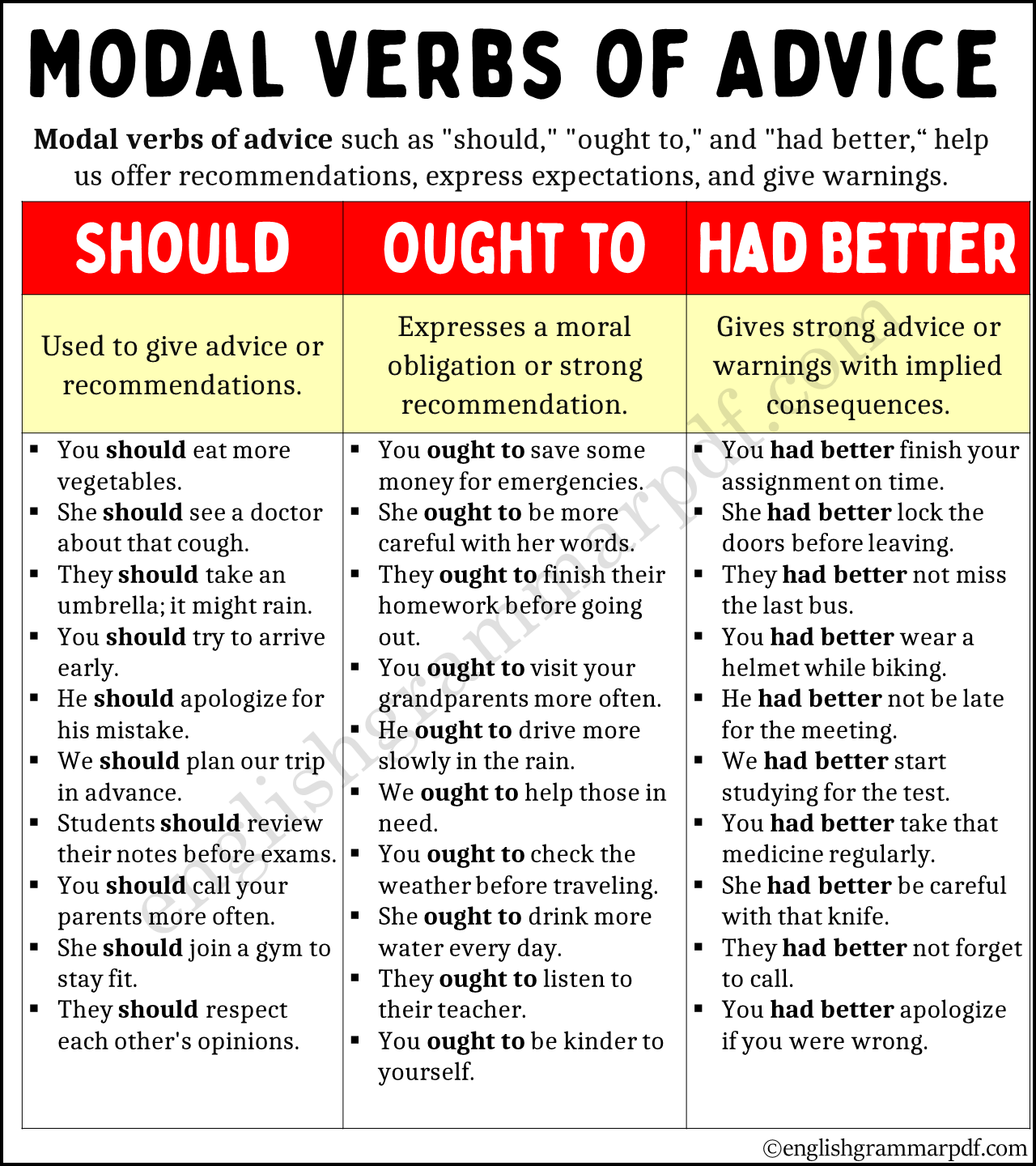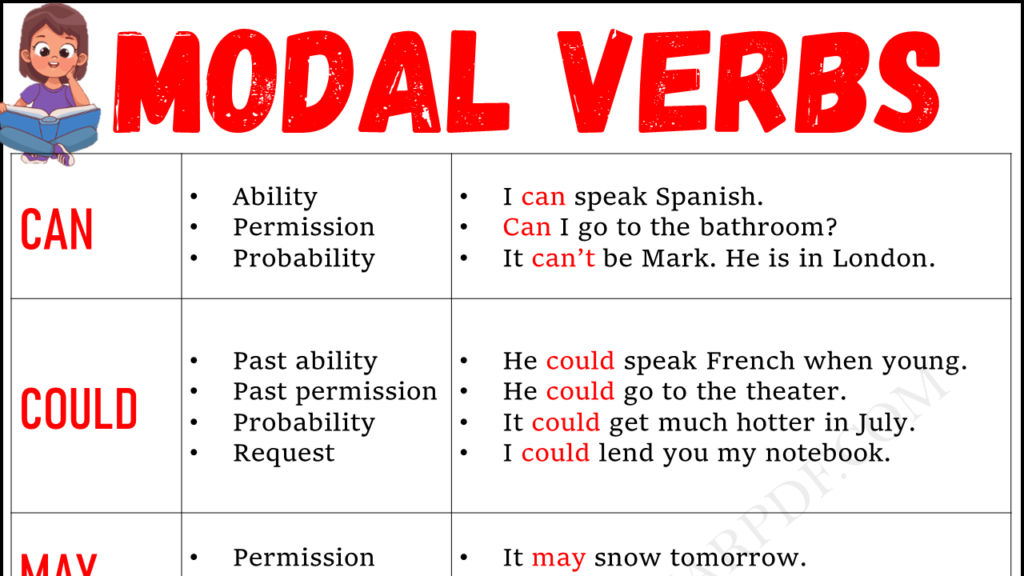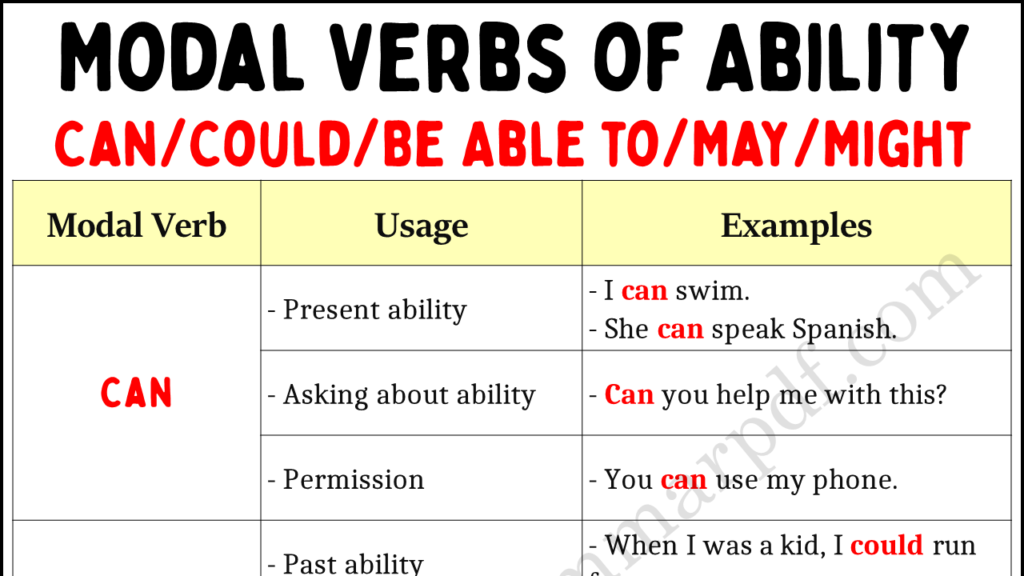Modal verbs of advice, such as “should,” “ought to,” and “had better,” play a crucial role in English. They help us offer recommendations, express expectations, and give warnings. Understanding how to use these modals effectively can greatly enhance your communication skills.
What Are Modal Verbs of Advice?
Modal verbs of advice are auxiliary verbs used to suggest, recommend, or advise a course of action. They are used to guide someone toward a beneficial or necessary action based on certain circumstances.
Usage, Rules, and Meaning
Should
“Should” is used to give advice, make recommendations, or suggest that something is the right thing to do.
Rules:
- “Should” is followed by the base form of the main verb.
- It is used in both positive and negative sentences.
Examples:
- You should eat more vegetables.
- She should see a doctor about that cough.
- They should take an umbrella; it might rain.
- You should try to arrive early.
- He should apologize for his mistake.
- We should plan our trip in advance.
- Students should review their notes before exams.
- You should call your parents more often.
- She should join a gym to stay fit.
- They should respect each other’s opinions.
Ought to
“Ought to” is similar to “should” but is often considered slightly stronger. It expresses a moral obligation or a recommendation.
Rules:
- “Ought to” is followed by the base form of the main verb.
- It is used in both positive and negative sentences.
Examples:
- You ought to save some money for emergencies.
- She ought to be more careful with her words.
- They ought to finish their homework before going out.
- You ought to visit your grandparents more often.
- He ought to drive more slowly in the rain.
- We ought to help those in need.
- You ought to check the weather before traveling.
- She ought to drink more water every day.
- They ought to listen to their teacher.
- You ought to be kinder to yourself.
Had Better
“Had better” is used to give strong advice or warnings, indicating that there will be negative consequences if the advice is not followed.
Rules:
- “Had better” is followed by the base form of the main verb.
- It often implies a sense of urgency or importance.
Examples:
- You had better finish your assignment on time.
- She had better lock the doors before leaving.
- They had better not miss the last bus.
- You had better wear a helmet while biking.
- He had better not be late for the meeting.
- We had better start studying for the test.
- You had better take that medicine regularly.
- She had better be careful with that knife.
- They had better not forget to call.
- You had better apologize if you were wrong.



